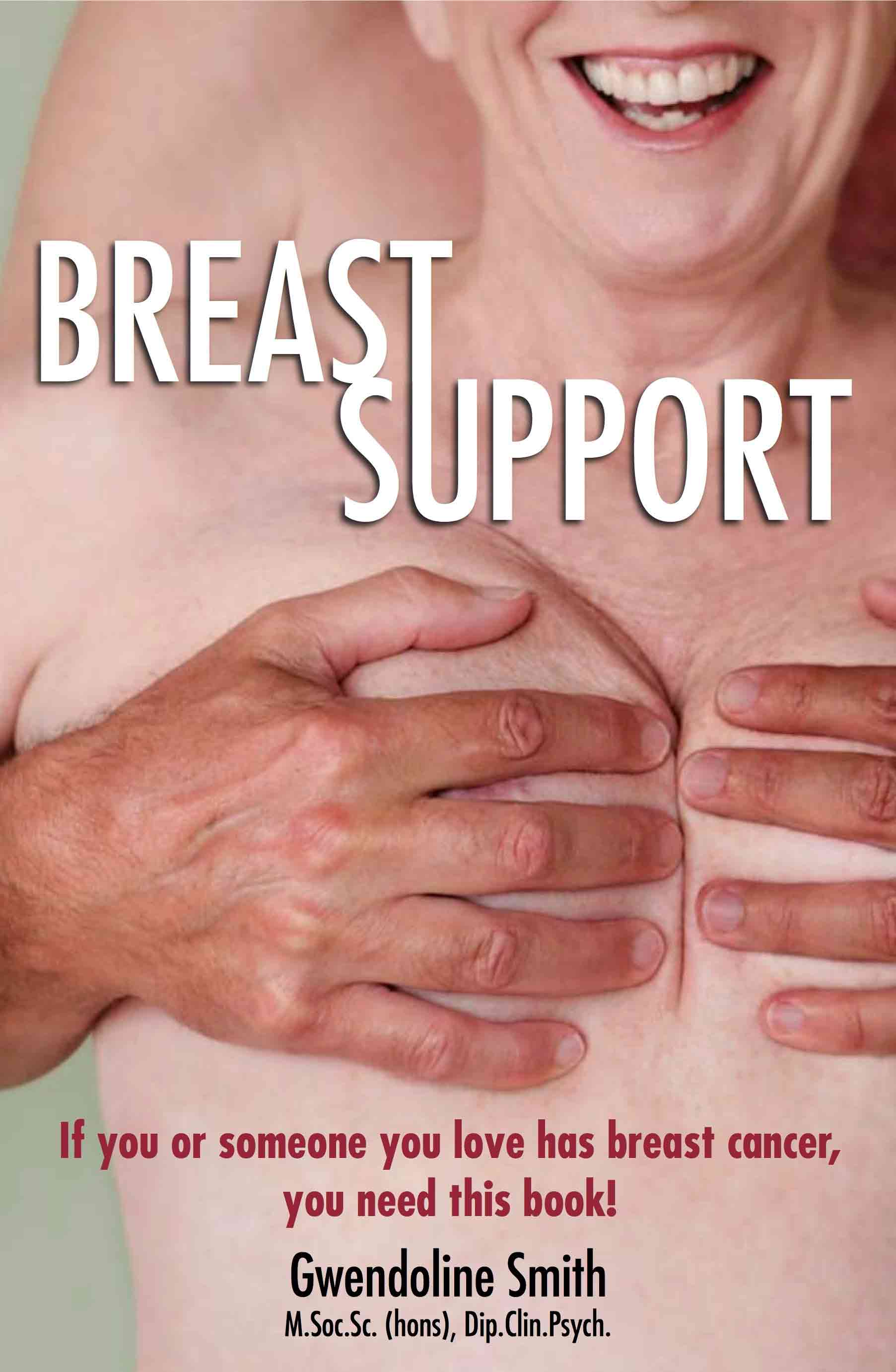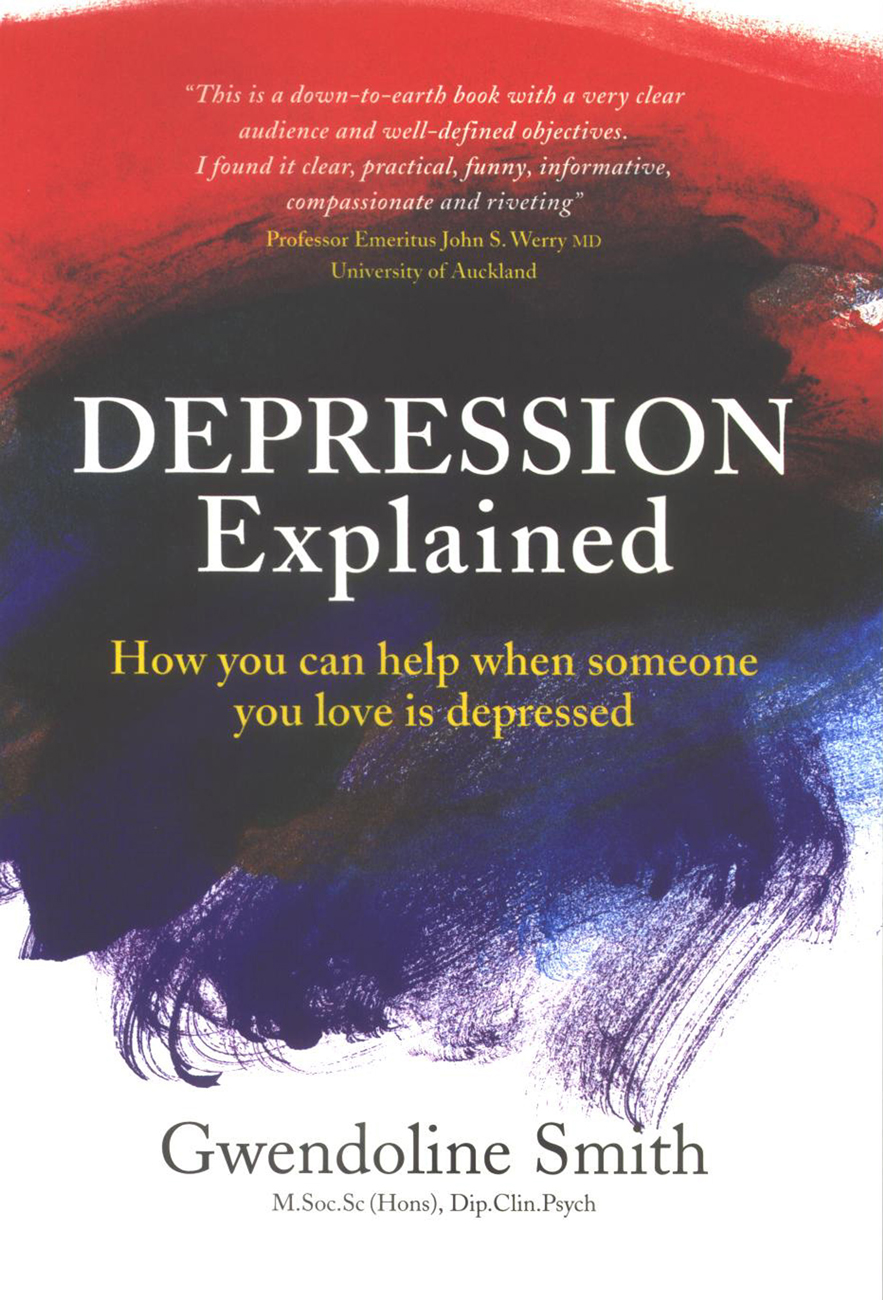Gwendoline Smith, M.Soc.Sc (Hons), Dip. Clin. Psych., is a clinical psychologist who was diagnosed with breast cancer in 2009 and has been undergoing treatment and reconstructive surgery ever since. She also suffers from severe depression and has treated many people suffering from depressive and other psychiatric disorders. Her earlier books include Depression Explained and Sharing the Load. She is a strong public speaker and lecturer, and lives in Auckland New Zealand.
Breast Support
If You or Someone You Love has Breast Cancer, You Need This Book!
In ‘Breast Support’, Gwendoline Smith describes not just the physical and medical experience of breast cancer, through diagnosis, surgery, recovery and rehabilitation, but the emotional and psychological experience too.
Supporting Gwendoline’s text are contributions from her medical specialists who tell the story from their point of view.
SPECIFICATIONS: Paperback | 234 x 153 mm | Includes photographs, diagrams and illustrations | 184 Pages |
Most Australians know at least one woman who has been diagnosed with breast cancer. That’s because 1 in 9 Australian women will be diagnosed with cancer before the age of 85.
When Gwendoline Smith chanced to have a breast examination at a mobile unit in 2009, little did she know where it might lead. Sure, she lived with the knowledge of her mother’s breast cancer years before, but could it really happen to her too? The realisation dawned only when the medical evidence could not be questioned, and so began one of the most testing years of her life. In Breast Support, Gwendoline describes not just the physical and medical experience of breast cancer, through diagnosis, surgery, recovery and rehabilitation, but the emotional and psychological experience too.
In a book memorable for its wit and self-deprecating humour, she answers some of the questions women frequently ask: what to wear to a breast examination; how to tell friends and family that you have the disease; how to be positive and maintain a cheerful outlook. She also offers insightful advice on esteem and self-confidence when facing the loss of an essential part of what it means to be feminine. Her book does not forget partners either: there are many messages in this book for husbands and boyfriends. There is also a separate chapter for women in lesbian relationships.
Supporting Gwendoline’s superbly written text are contributions from her surgeon and other medical specialists who tell the story from their point of view. The text is therefore a unique combination of personal story and insider information, offered with both a light touch and professional expertise.
Gold Coast Magazine – September 2014

You may also like…
Depression Explained
USD $29.99 Tax IncludedHow you can help when someone you love is depressed
‘Highly recommended – to comprehend what a depressed relative may be experiencing and the type of help they require.’ Graham D. Burrows, Professor of Psychiatry, University of Melbourne.
Depression is a common disorder, but it is surrounded by ignorance, fear and prejudice. As a clinical psychologist, Gwendoline Smith has worked with many depressed people, but it wasn’t until she suffered depression herself that she fully appreciated how these factors can prevent effective treatment. In Depression Explained she faces these issues and combines personal experience, clinical information and commonsense advice for all those who have to deal with depression, including childhood and adolescent depression, post-natal depression and depression in the elderly. She defines depression and explains how to recognise it, outlines the role of the psychiatrist, describes the various medications and therapies available, discusses the place of natural therapies, offers advice to the carer, and throughout the book includes the experiences of many families and the lessons they have to offer.
Specifications: 9780473088620 | Paperback | 234 x 156mm | 160 Pages


